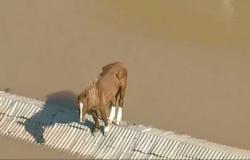by Giuseppe Gagliano –
The situation in Sudan remains dramatically difficult, where for months the Sudanese Armed Forces have been facing off against the Rapid Support Forces. Despite various attempts at mediation, at the moment no solution has been reached to the conflict with dramatic consequences for the population: there are in fact as many as eight million displaced people. These kinds of internal conflicts need to be seen in a broader context. Since Sudan borders the Red Sea, its geographical location is of great importance, so the Gulf Cooperation Council countries have close trade relations with Sudan. Specifically, the largest Arab investors are the United Arab Emirates on the one hand and Saudi Arabia on the other. Since 2019, both Arab countries have supported the government of Sudan by contributing as much as three billion dollars. The following year the United Arab Emirates increased investments to $6 billion. This considerable allocation has as its main purpose to build the port infrastructure of Abu Amama and a road infrastructure of approximately 500 km. Saudi Arabia has instead invested 3 billion dollars in the mining sector.
However, cooperation with the Gulf countries has given way to marked competition between Saudi Arabia and the United Arab Emirates, with Abu Dhabi ending up establishing increasingly close relations with the Rapid Support Forces (RSF), led by General Mohammed Hamdan Dagalo, known as Hemedti. This choice of side should not be surprising: the general had in fact helped the United Arab Emirates fight the Yemeni rebels and support Khalifa Haftar in Libya.
With the internal conflict in Sudan, Arab countries have taken different positions: Riyadh, for example, has tried to adopt a mediation attitude, while Abu Dhabi has instead increased support for the Rapid Support Forces. The peak of this military support was reached in 2023, made not only by traditional weapons, but also by drones which are now an increasingly used tool in wars.
However, there is a more subtle link between the United Arab Emirates and General Hemedti, based on one of Africa’s oldest resources: gold. In fact, the war that the general is currently waging in Sudan is partly financed thanks to gold mining, also made possible thanks to the collaboration with Africa Corps, i.e. with the former Russian Wagner group. Among other things, Russia uses the extraction of precious metal to finance the war in Ukraine.
Generally speaking, General Hemedti controls all the most important gold mines in Sudan. But alongside the Arab countries there is another player in this complex chessboard, and that is Iran, which however supports the Sudanese armed forces to which it has delivered drones and weapons. Naturally, Iran’s support is the result of support for all the pro-Iranian militias present on the Red Sea and the Mediterranean.
Alongside Iran, Egypt plays a far from marginal role, supporting the Sudanese Armed Forces. Several joint military exercises have been conducted in past years.
Once again, these bilateral relations play an important role, since Egypt is in fact one of the main buyers of gold from Sudan’s mines. If up to now the US and European attempts to reach mediation between the parties have not found a solution, this is due to the Arab countries and their economic influence on both the United States and the European Union.
The Gulf countries therefore have no intention of finding a solution to the conflict immediately, since they are also in strong competition for the exploitation of resources.





